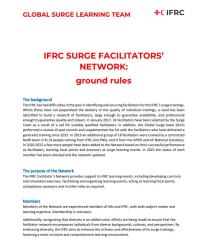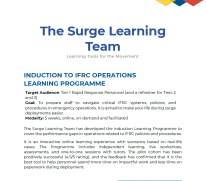Target Audience: Tier 1 Rapid Response Personnel (and a refresher for Tiers 2 and 3)
Goal: To prepare staff to navigate critical IFRC systems, policies, and procedures in emergency operations. It is aimed to make your life during surge deployments easier.
Modality: 5 weeks, online, on-demand and f...
Read more



